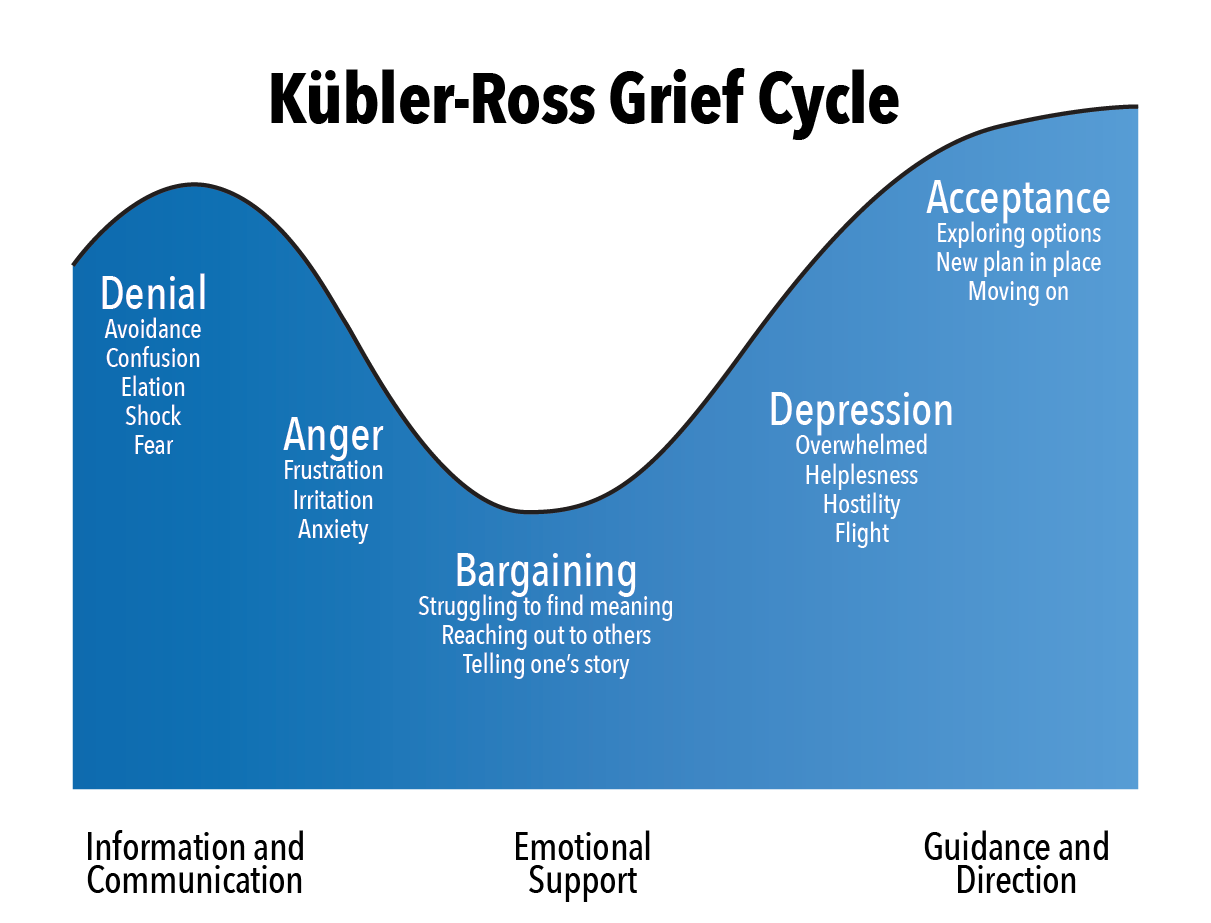WHAT IS BEREAVEMENT?
Bereavement can be described as losing someone who meant a lot to us. It is outlined and followed by grief, which is the process and the range of emotions we go through as we gradually adjust and come to terms with the loss that we have suffered. Losing someone important to us, whether it be a partner, family member, friend or pet can be physically and emotionally devastating.
Bereavement doesn’t always necessarily mean losing someone through a death. Greif can be experienced when a partner goes through a breakup or divorce and the children may grieve the loss that they have suffered through a parent or even a friend moving away and having to adjust to a life where you no longer have them present.
There is no set pattern or right or wrong way to grieve and everyone will grieve in their own way. You may experience all sorts of feelings, or you may feel nothing. You may find it easy to talk or you might bottle all your emotions up. There are no rules in grief. Whatever happens it is important to be kind to yourself and give yourself time to heal. It is crucial to acknowledge all the feelings that you may go through and to speak to someone who is supportive and will listen to you and give you
space to share and discuss your experiences.
It has been argued that there are different phases of grief, and one theory is that there are five stages: denial, anger, bargaining, depression, and acceptance (Five Stages of Grief, Elisabeth Kübler-Ross). Originally this theory stated that people experience these stages in a set order, but more recent research has explained that there is no set way that a person grieves and that all of these feelings can be experienced multiple times at different points throughout your grief.
A child’s stress level is normally at one of its highest points before they know that someone is going to die, whether it be a friend, family member or loved one because of the fear or the unknown. This can have a direct physical impact on the child including Behaviour, mood and appetite changes, sleep disturbances, regression, illness (real and psychosomatic), higher rates of physical health problems (somatic pains normally related to things like anxiety) and changes in weight.

The physical aspects of how a child grieves are sometimes easier to identify because children have a limited ability to put feelings, thoughts and memories into words and tend to ‘act out’ with behaviours rather than express themselves verbally. Children and young people who have gone through a significant loss can feel anxious or worried (this may be centred around
the health of themselves or others as they are scared of losing anyone else that they love), extreme sadness, they may become socially withdrawn, anger or mood swings, inability to focus or concentrate and feeling overwhelmed. It is helpful to note that these feelings are normal for children to experience and important that they are given the time and space to grieve in their
own way.
The Miracle Foundation Scio
51 Hamilton Road
Motherwell
ML1 3DD
The Miracle Foundation Scio
51 Hamilton Road
Motherwell
ML1 3DD
Registered in Scotland as a charity no. SCO49840
All Rights Reserved | The Miracle Foundation Scio


